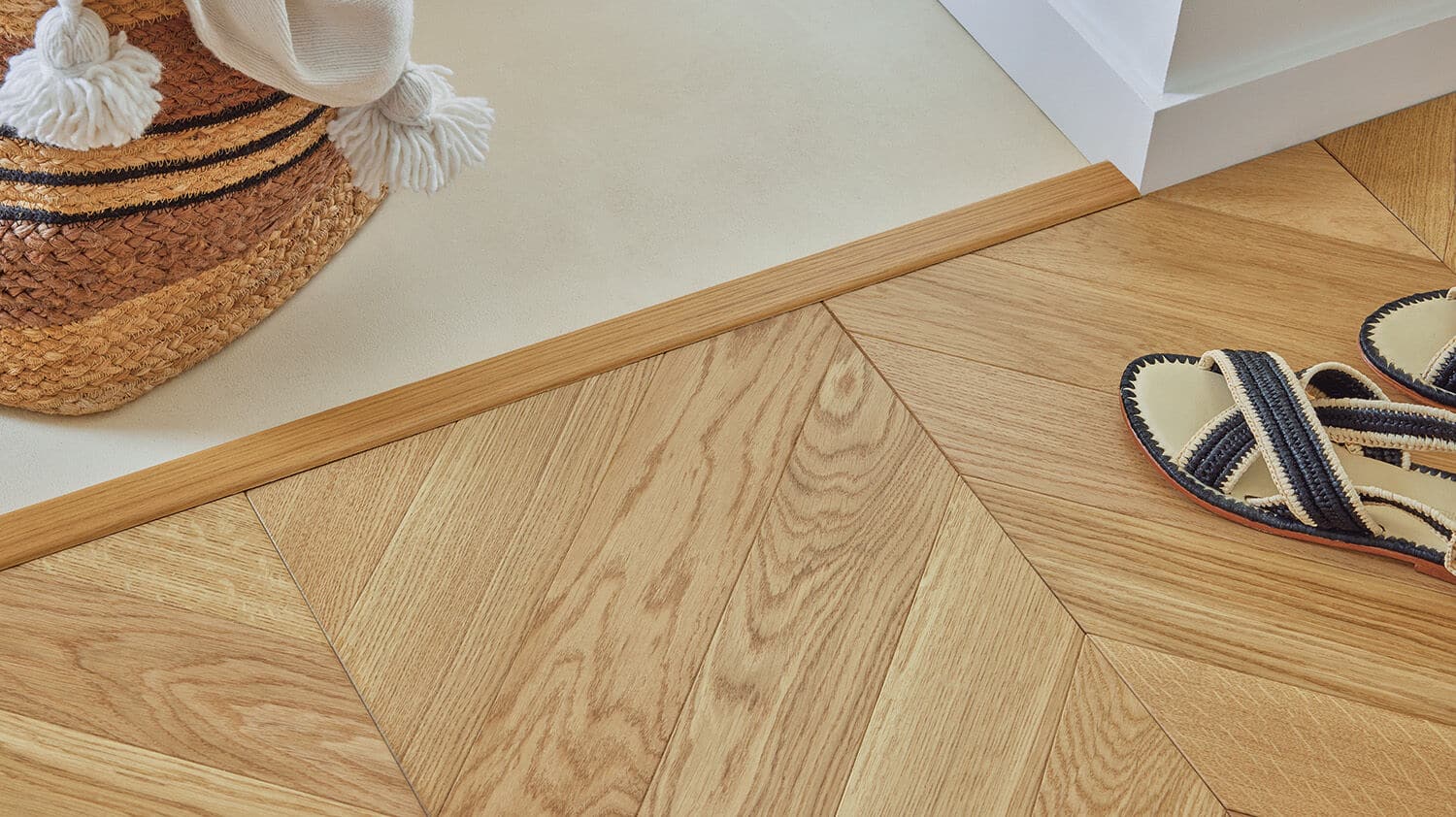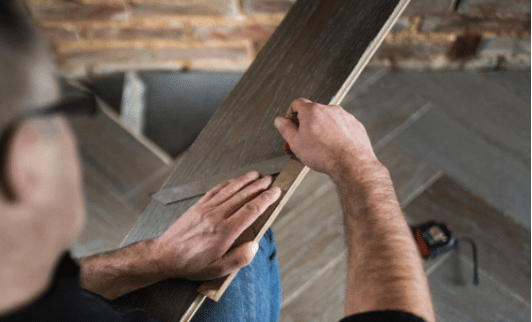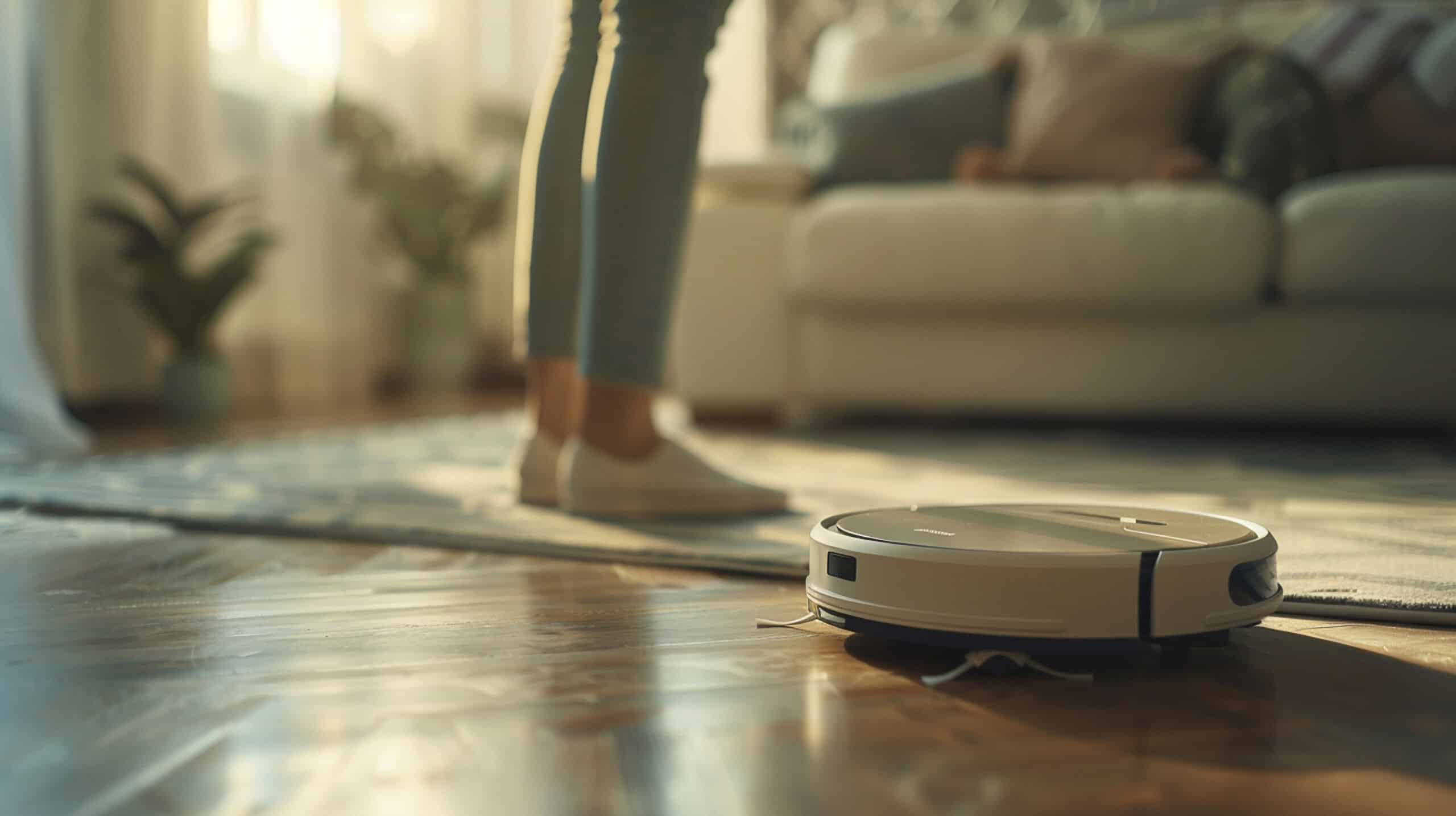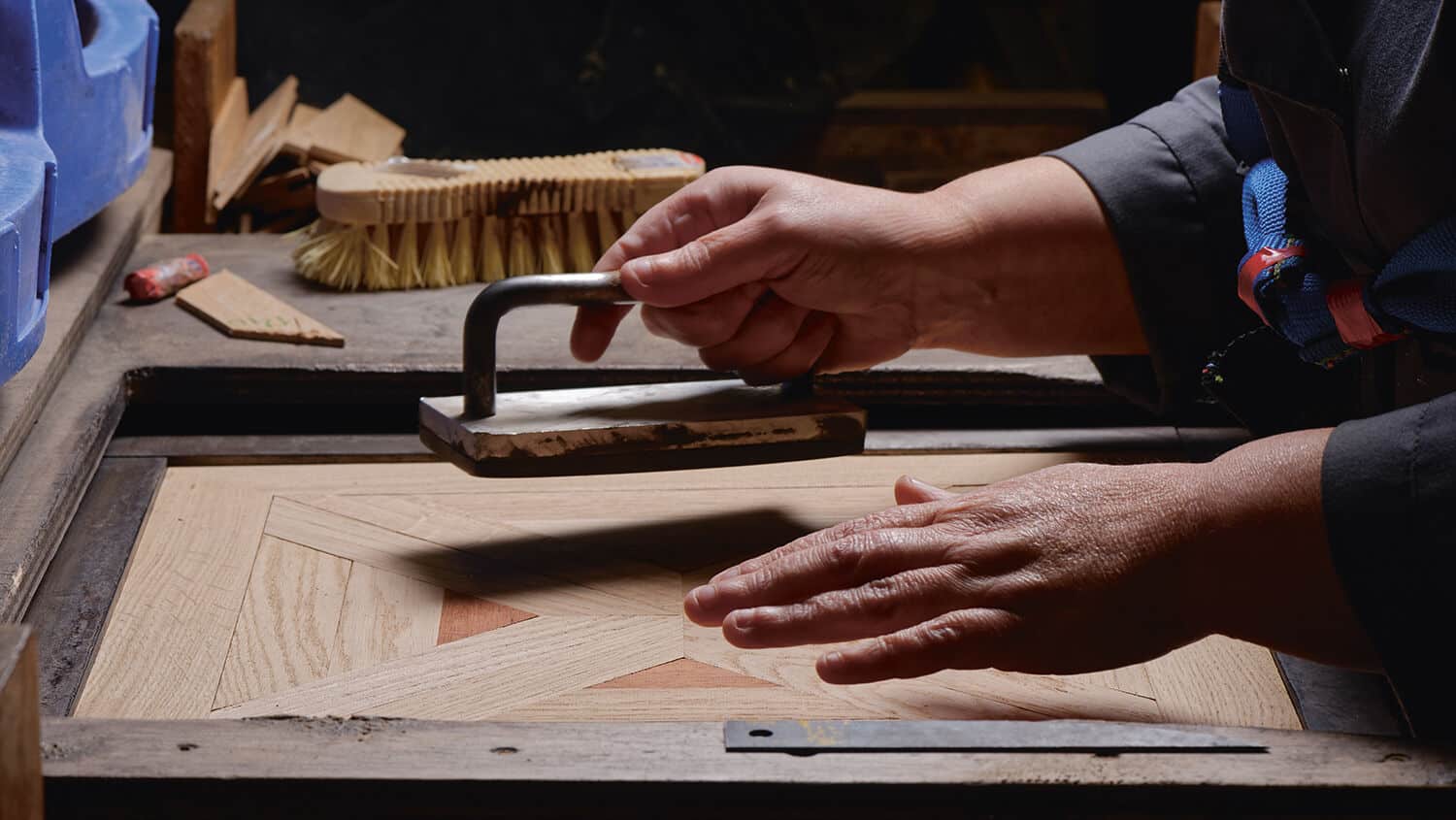Oiling wood floors
We advise oiling your wood floor once or twice a year. Applying a good coat of oil is the best way to protect the floor from any accidents and irreparable damage. Here are some basic rules to follow.
A step-by-step guide to oiling wood floors
There are two types of wood floor oil: protective oil that should be applied once a year and restoration oil, which is generally applied by professionals, so we’ll focus on the former.
There are several steps to follow to ensure the oil is applied perfectly to your wood floor. From choosing the oil to the drying process, here are the basics of oil application.
Choosing the right oil for your wood floor
To ensure your wood floor is correctly oiled, we recommend using Panaget’s impregnating oil. It offers effective long-lasting protection against dirt and stains whilst preserving the wood’s natural colour and shine.
To ensure your wood floor maintains its appearance over time, it’s essential to tailor maintenance to its use and follow the guidelines below.
Some maintenance products may contain wax or chemicals that may damage the surface of the floor. To avoid this, we recommend using Panaget’s products, such as the natural maintenance oil.
Maintaining oiled floors helps to protect them and extend their lifespan. Read on to discover our top tips for maintaining your oiled wood floor.
Preparing your wood floor
The preparation of your floor depends on whether it is completely raw or already oiled.
When oiling your wood floor, the ambient temperature should always be between 12 and 28°C. We advise airing the room by opening a single window (any more and the airflow might prevent the floor from drying correctly).
If your wood floor is very old, you will first need to strip it and fill in any holes. Use wood filler before gently sanding the surface of the floor.
If you have an oiled wood floor, vacuum in the direction of the strips so that they are dirt free before you apply a new coat of oil.
It is important to clean any type of wood floor prior to restoration.
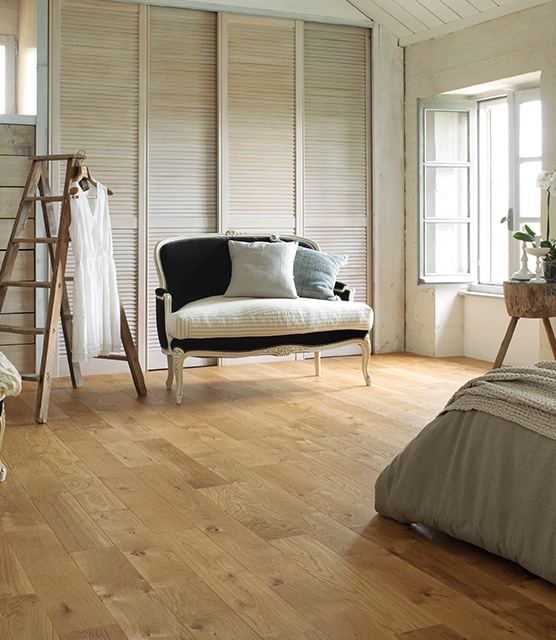
Applying the wood floor oil
Once your wood floor is clean and dust free, it’s ready to be oiled. To speed up the drying process, you can open a window to get the air circulating inside. Spray Panaget’s natural maintenance oil onto the floor and use a clean, dry cotton rag to ensure it is applied evenly across the strips.
Be conservative with the amount of oil you apply and try not to get too much between the strips. To speed up the drying process, open a window so that the air circulates in the room.
Leaving a freshly oiled floor to dry
Once the natural maintenance oil has been applied, leave the floor to dry for 4 to 8 hours by ventilating the room.
When applying oil to untreated wood, it’s better to be safe than sorry. Leave the floor to dry for at least 48 hours to ensure all the oil has been soaked up and the wood is completely dry. It will take 6 days for the oil to be completely absorbed so watch out for any dirt and furniture marks during this time and don’t replace any rugs just yet.
Simple and straightforward, annual maintenance can help to restore the protective coating and preserve the warm and natural appearance of oiled wood floors.
Your wood floor should now be perfectly oiled and shining. We advise repeating the maintenance process once a year to keep your wood floor in good condition.
For further advice, you can always visit one of our distributor’s stores.



